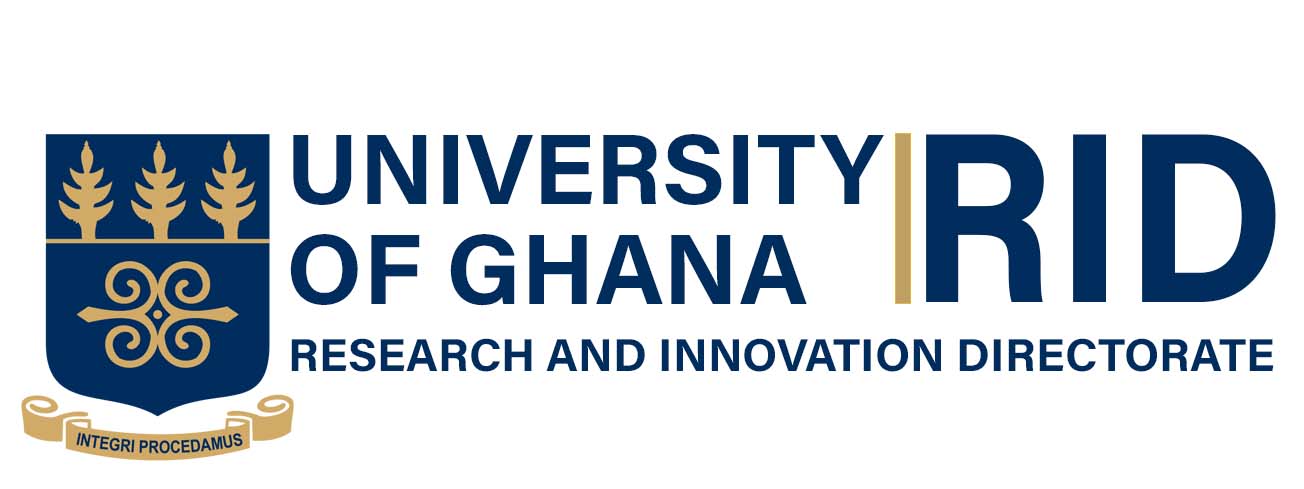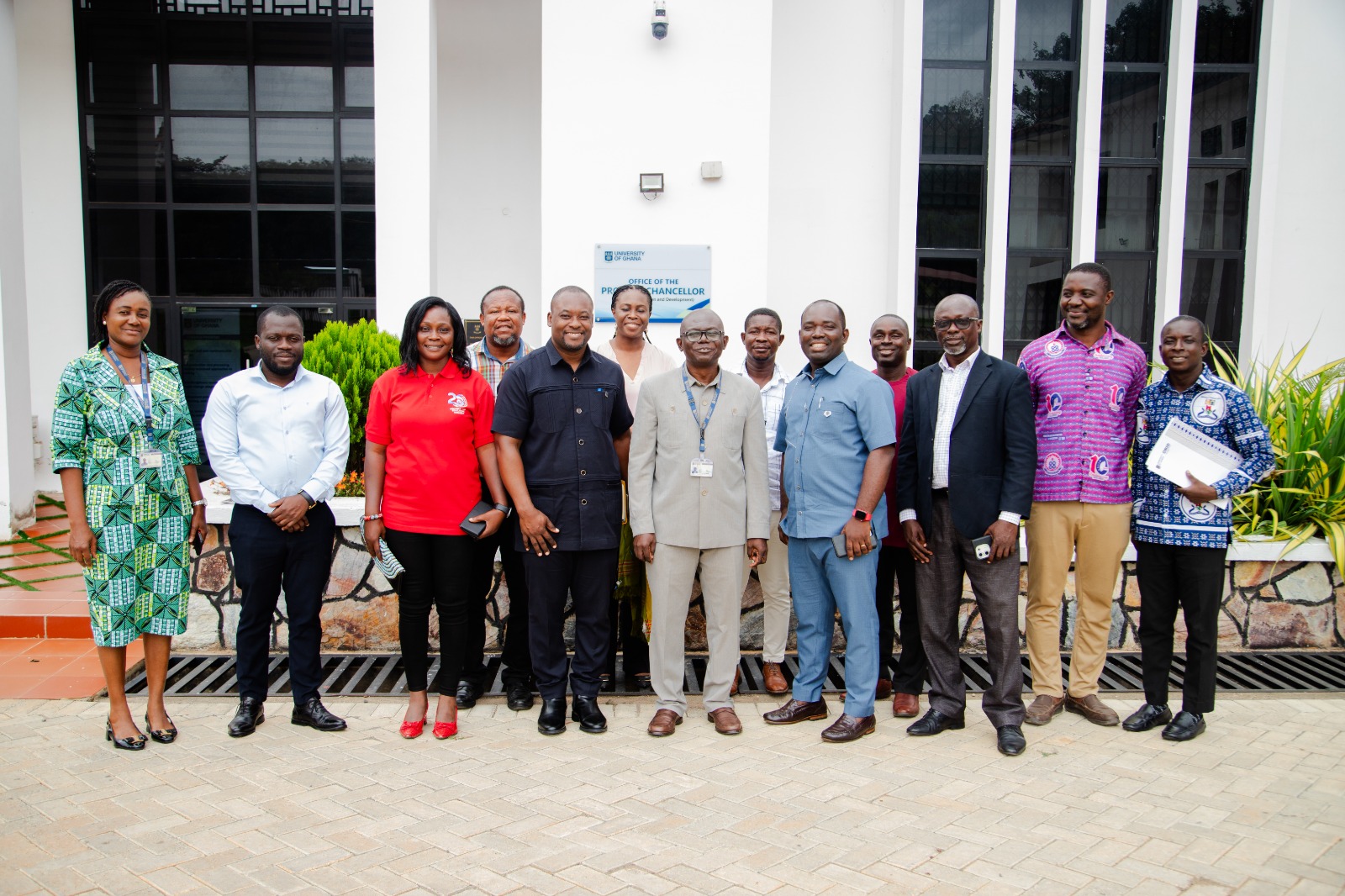Faculty from the Directorate of Research, Innovation and Development (DRID) of the University of Education, Winneba (UEW) on Tuesday, 23rd September 2025, paid a familiarization visit to the Research and Innovation Directorate (RID) to gain insight into the UG research management landscape and to strengthen institutional collaboration.
The seven member delegation from Winneba was led by the Director, Professor Enoch F. Sam. Their arrival coincided with a visit by Mr. Tinashe Zishiri, the Registrar of the Midlands State University in Zimbabwe who joined the meeting and contributed to the discussions, underscoring the broader relevance of institutional engagement.
Prof. David Dodoo-Arhin, Director of Research and Innovation, welcomed the guests to the Directorate. Dr. Phillip Siaw Kissi, from the visiting team presented an overview of research management at UEW and highlighted the structure and functions of the Directorate. He traced the transition from a donor support unit to external funds office which had evolved into a fully-fledged Directorate mandated to drive research visibility, improve institutional rankings, provide grantsmanship support and consulting services.
Prof. Dodoo-Arhin outlined UG’s research management history from an offshoot of the School of Graduate Studies to an Office of Research, Innovation and Development led by Pro Vice-Chancellor in a deliberate effort to accord research the important place necessary for a research intensive university. He described the remarkable growth in research projects and funding which had resulted in restructuring to create a Research and Innovation Directorate and a decentralized system of research management in August 2024. He emphasized that RID remained the unit with oversight responsibility for research administration at the University and has received the requisite support from UG’s senior management in executing this mandate. RID’s activities are aligned with the University’s Strategic Plan ( 2024–2029) which contain seven multidisciplinary research priorities. He explained that UG’s research impact transcends global rankings. As an institution of higher learning UG values feedback from stakeholders that informs institutional policy and growth.
Mrs. Joyce Appiah, Research Development Officer, working in the pre-award unit, followed with a detailed presentation on strategies for grant sourcing. She encouraged institutions to maintain comprehensive funding calendars, cultivate networks, automate alerts for funding opportunities, and organize regular grant clinics to improve success rates. She emphasized that winning grants requires more than ideas, but deliberate strategy and positioning.
Mr. Andrew Tetteywayo, Senior Research Development Officer (SRDO), responsible for the grant management life cycle, underscored the importance of risk mitigation in project financing, citing the need for robust insurance mechanisms for staff and external project personnel. He highlighted UG’s reliance on employer and public liability insurance while encouraging Principal Investigators (PIs) to take responsibility for insuring external project staff when necessary.
Mrs Amma Appah also presented on partner sourcing and collocation. She shared insights on key steps to find partners and collaborators. She stressed the need to build professional networks for collaborating. She encouraged them to participate in events such as conferences, workshops, and seminars to connect with potential collaborators and build networks.
Mr. Jacob Zuttah (SRDO) who evaluates institutional research performance, addressed strategies for improving university rankings. He encouraged institutions to pursue “low-hanging fruit,” referring to ranking systems with less stringent requirements, while building long-term capacity to meet tougher benchmarks. He stressed the value of publishing in high-impact journals and called for closer collaboration between faculty and university libraries to ensure research outputs are submitted to reputable outlets.
The final presentation, delivered by Mrs. Mammie Hutchful Nortey (SRDO) who leads the innovation unit was lively and engaging, bringing humor and role play to showcase the effects of innovation in tutoring. She provided practical insights into concept development and proposal writing, stressing the importance of early-stage planning and encouraging cross-institutional collaborations to strengthen proposals.
The guests called on Prof. Felix Ankomah Asante, Pro Vice-Chancellor for Research, Innovation and Development who welcomed the team warmly. He commended their initiative to engage and share experiences and urged them to build on UG’s lessons while developing appropriate systems which best fit with their mission and vision. He assured them that with focus and hard work, progress in research management would be accelerated.

Prof. Dodoo-Arhin thanked the guests for the visit and expressed optimism about future collaborations. He reaffirmed RID’s commitment to supporting peer institutions in strengthening Ghana’s research and innovation ecosystem. The programme concluded with a networking lunch, further consolidating the opportunity to explore potential areas of collaboration.

